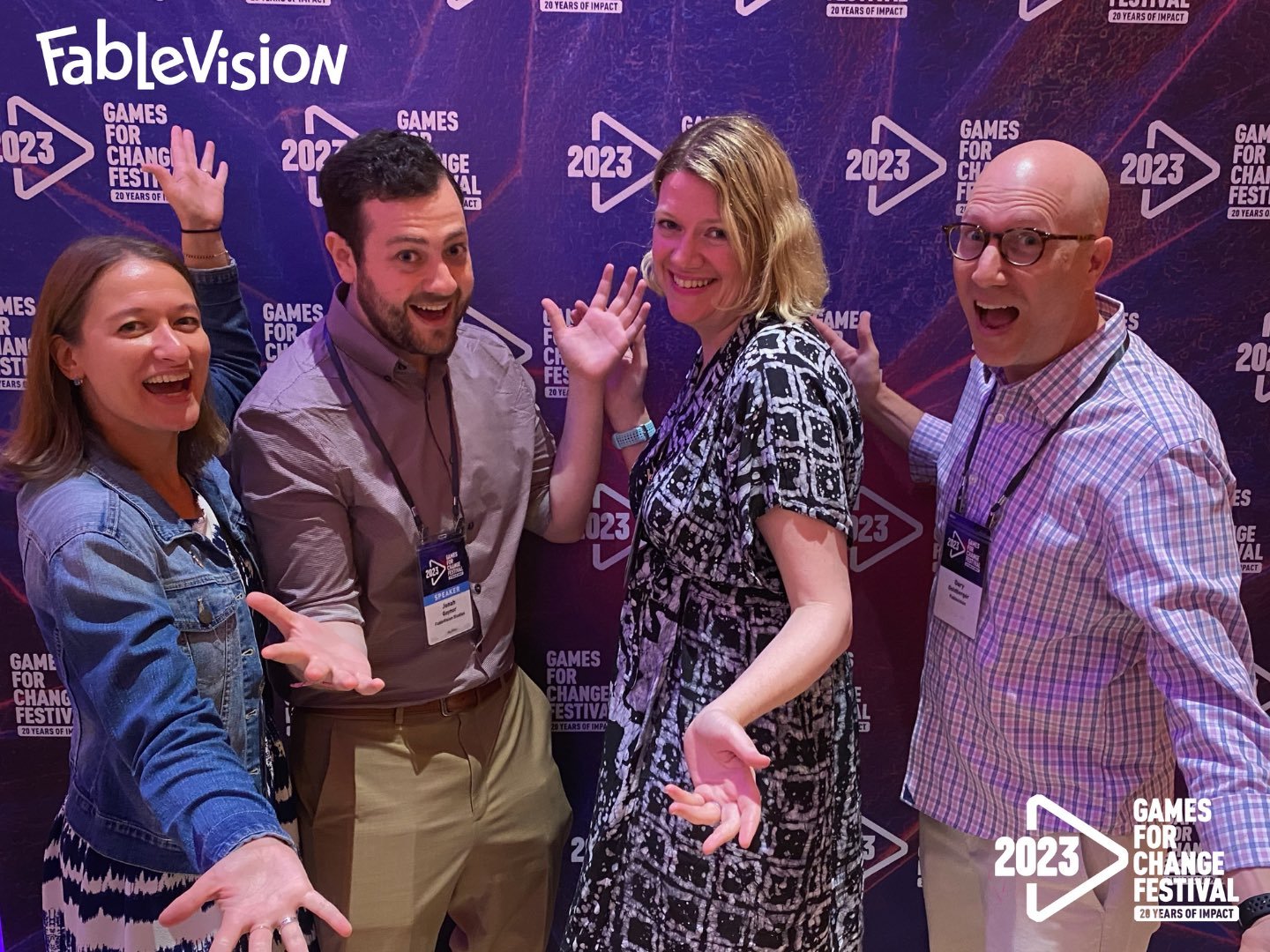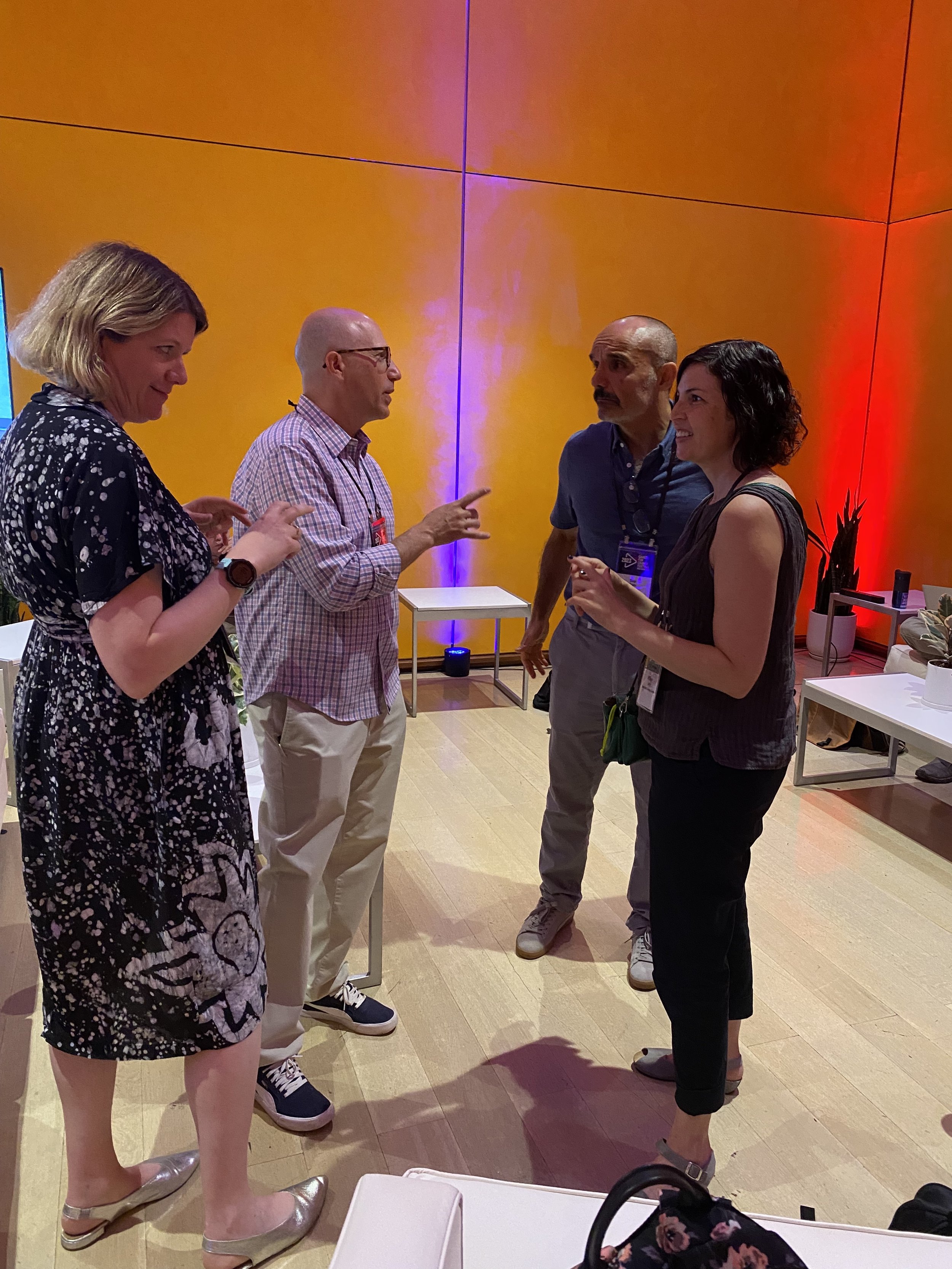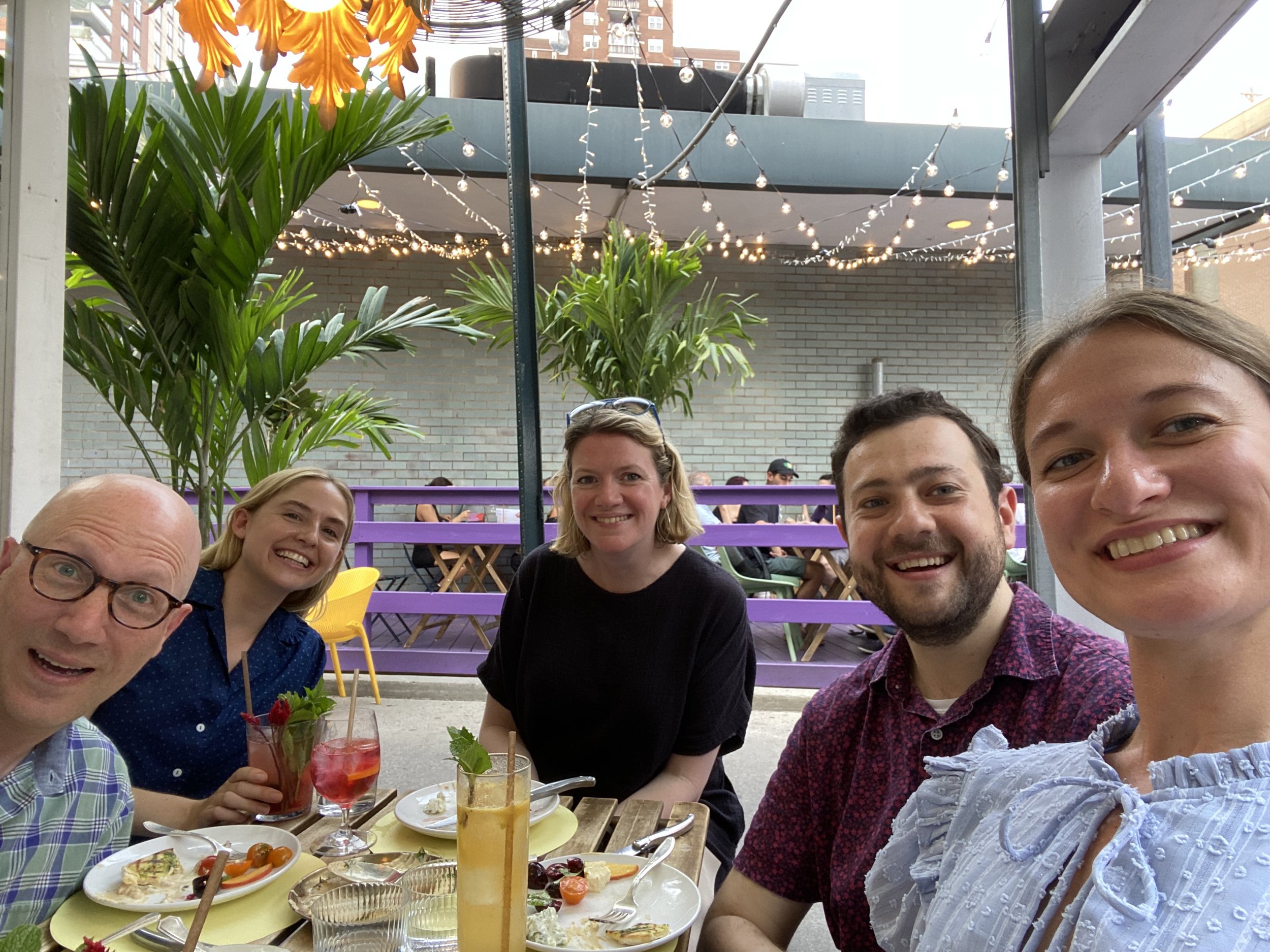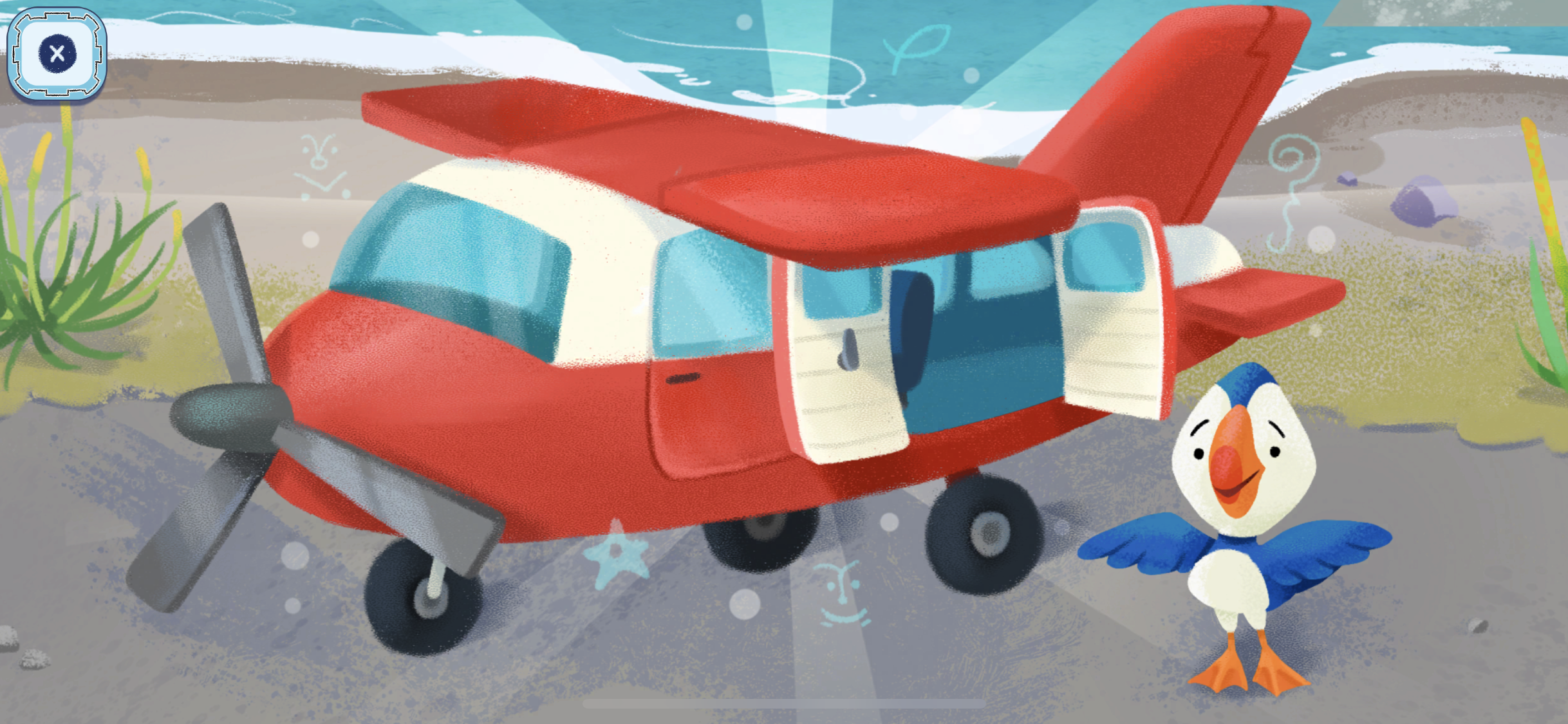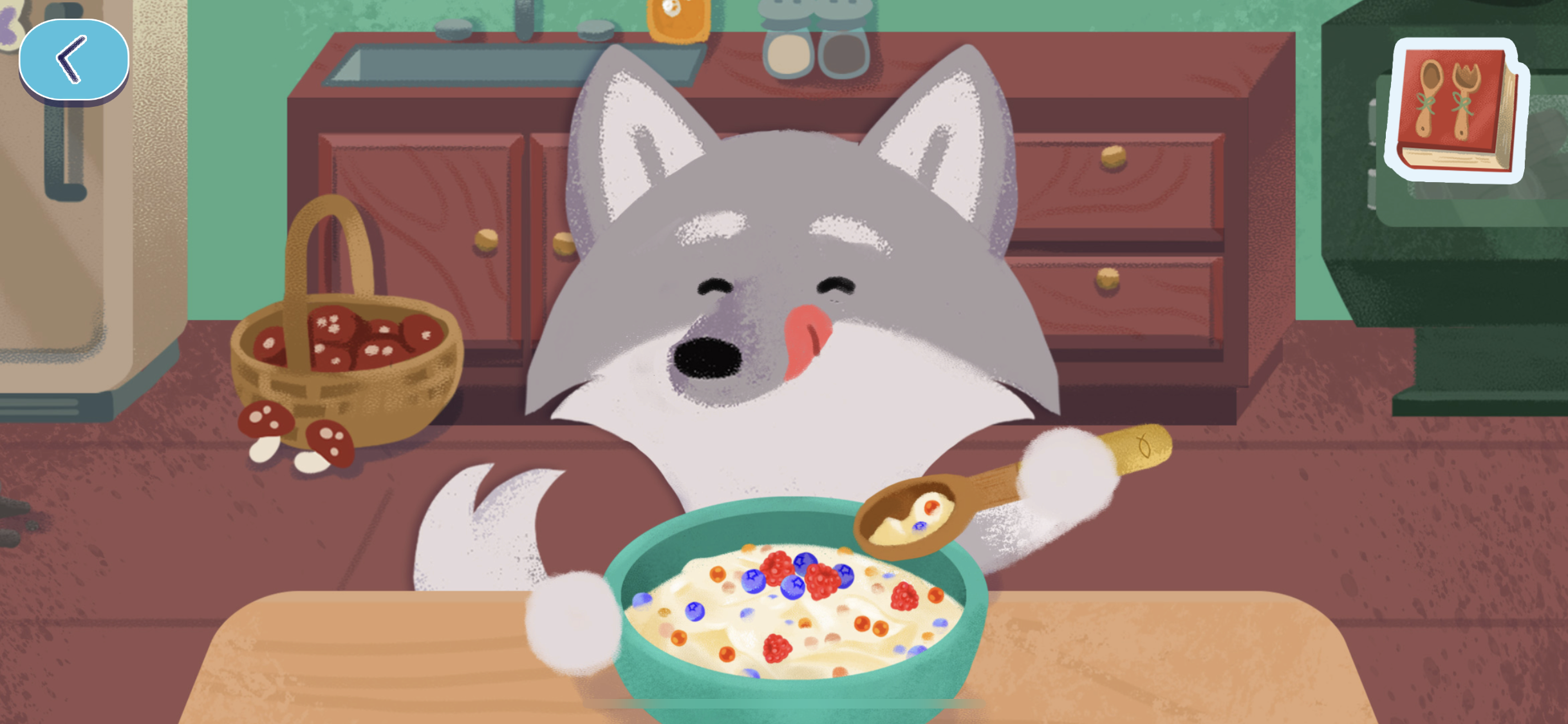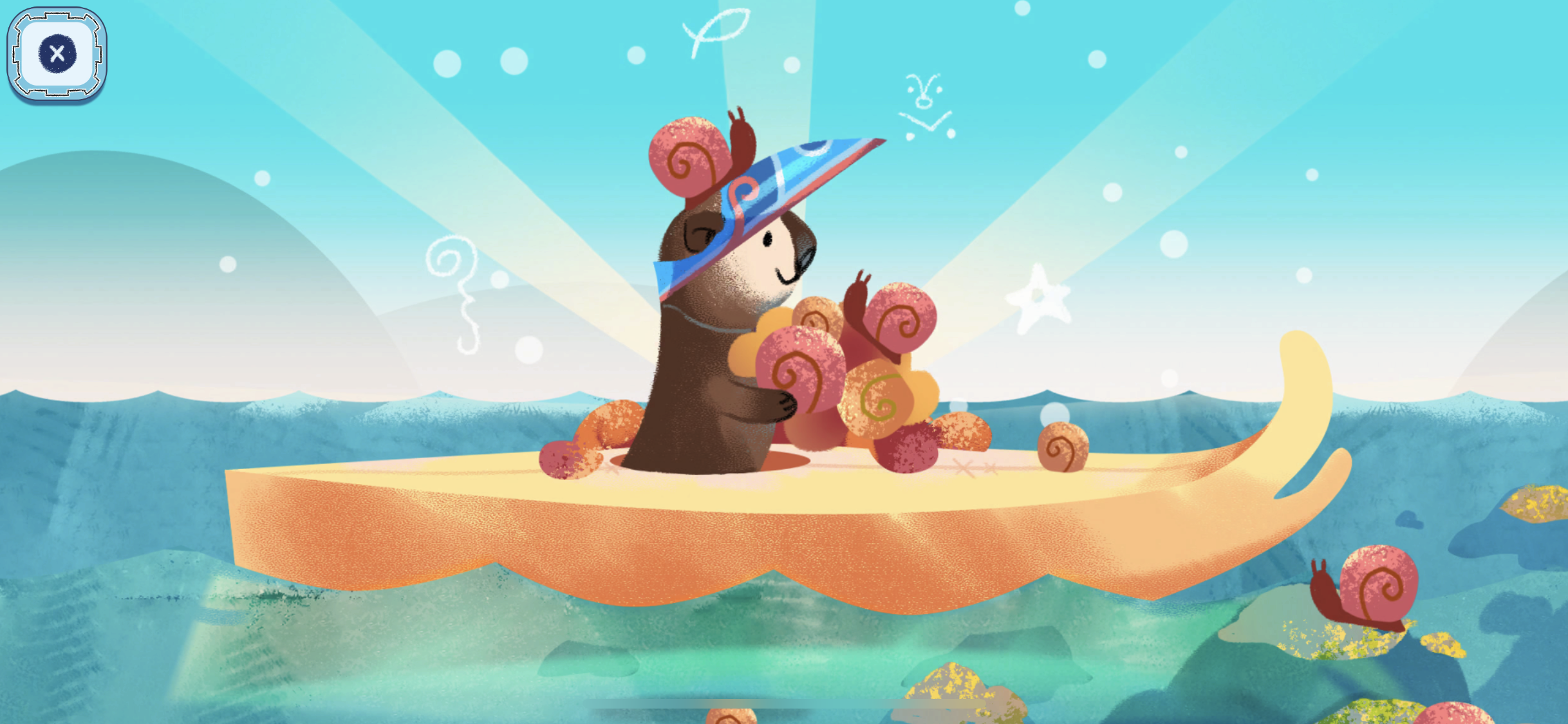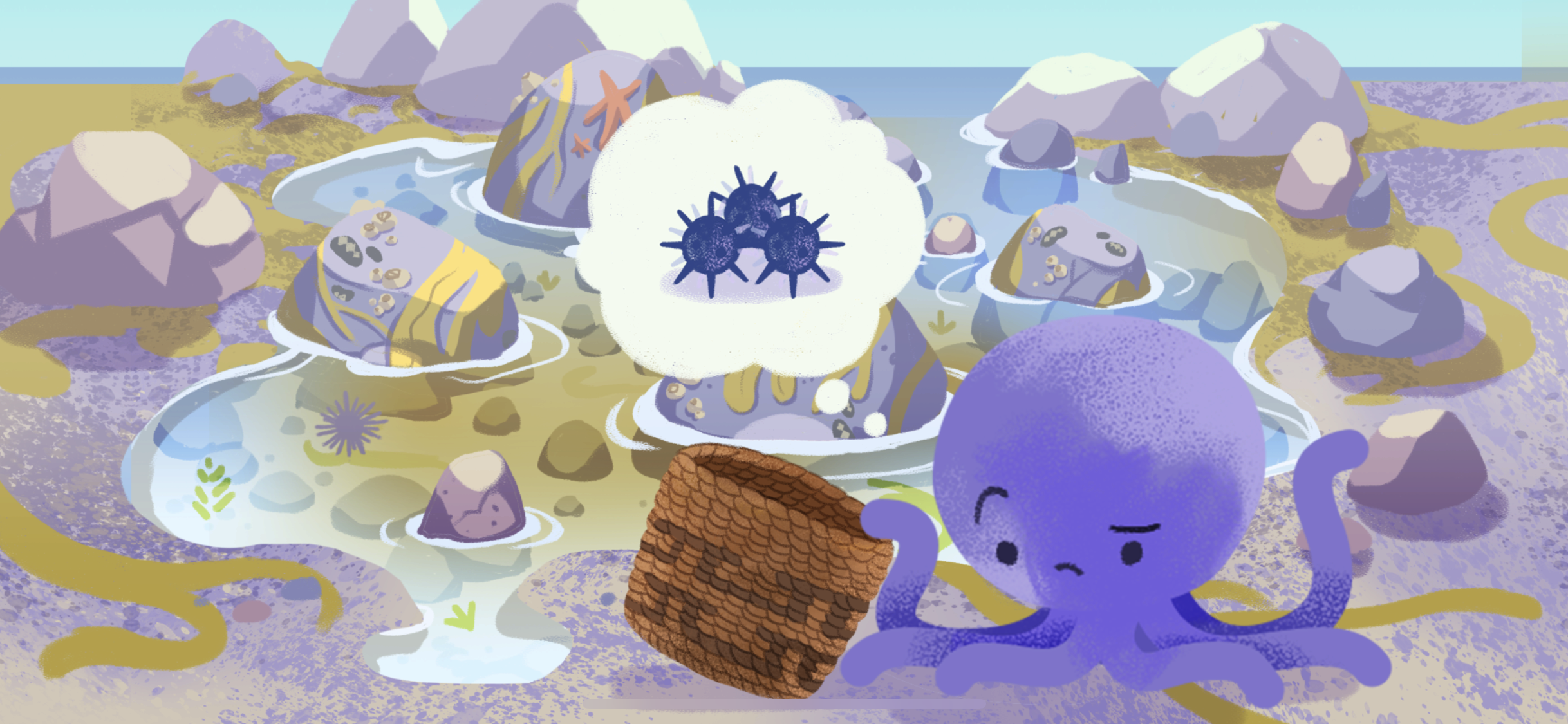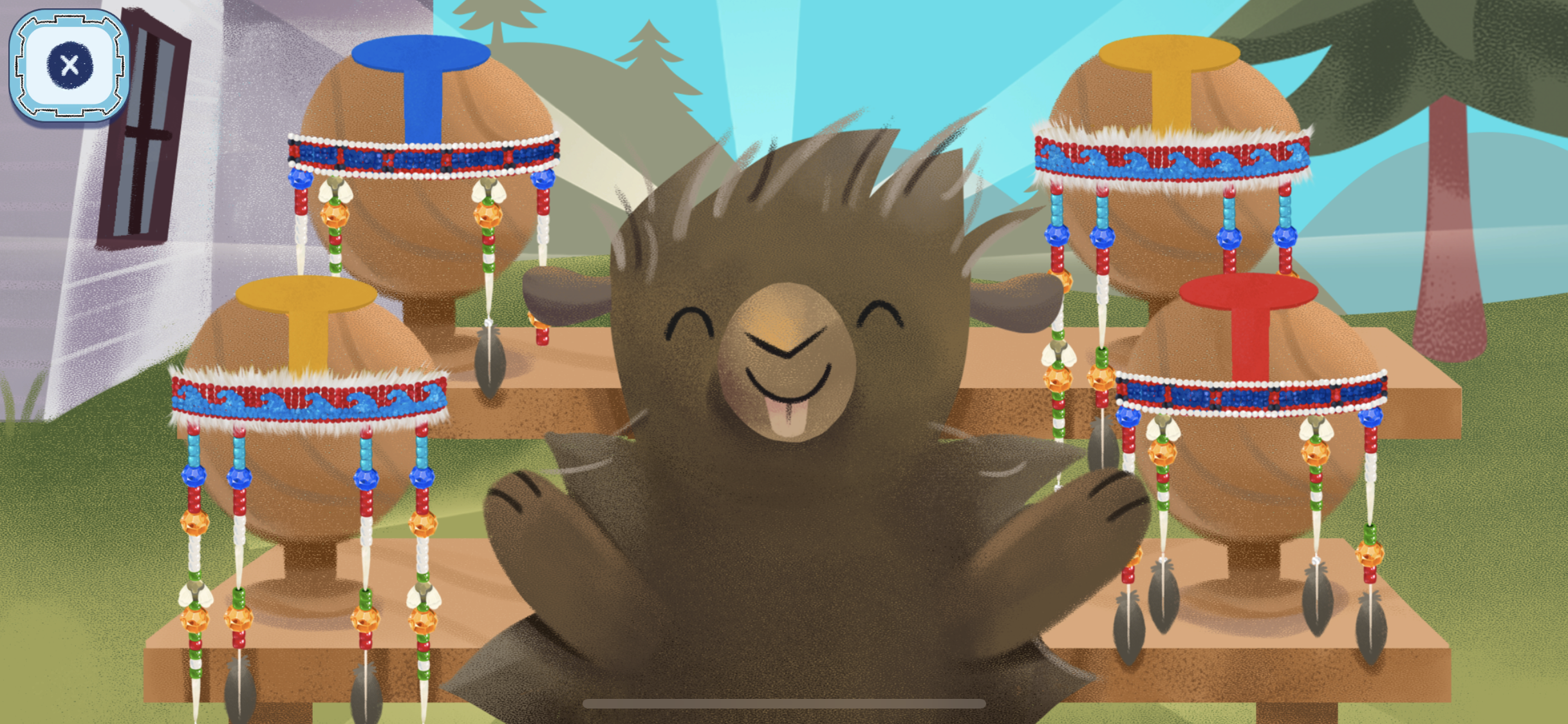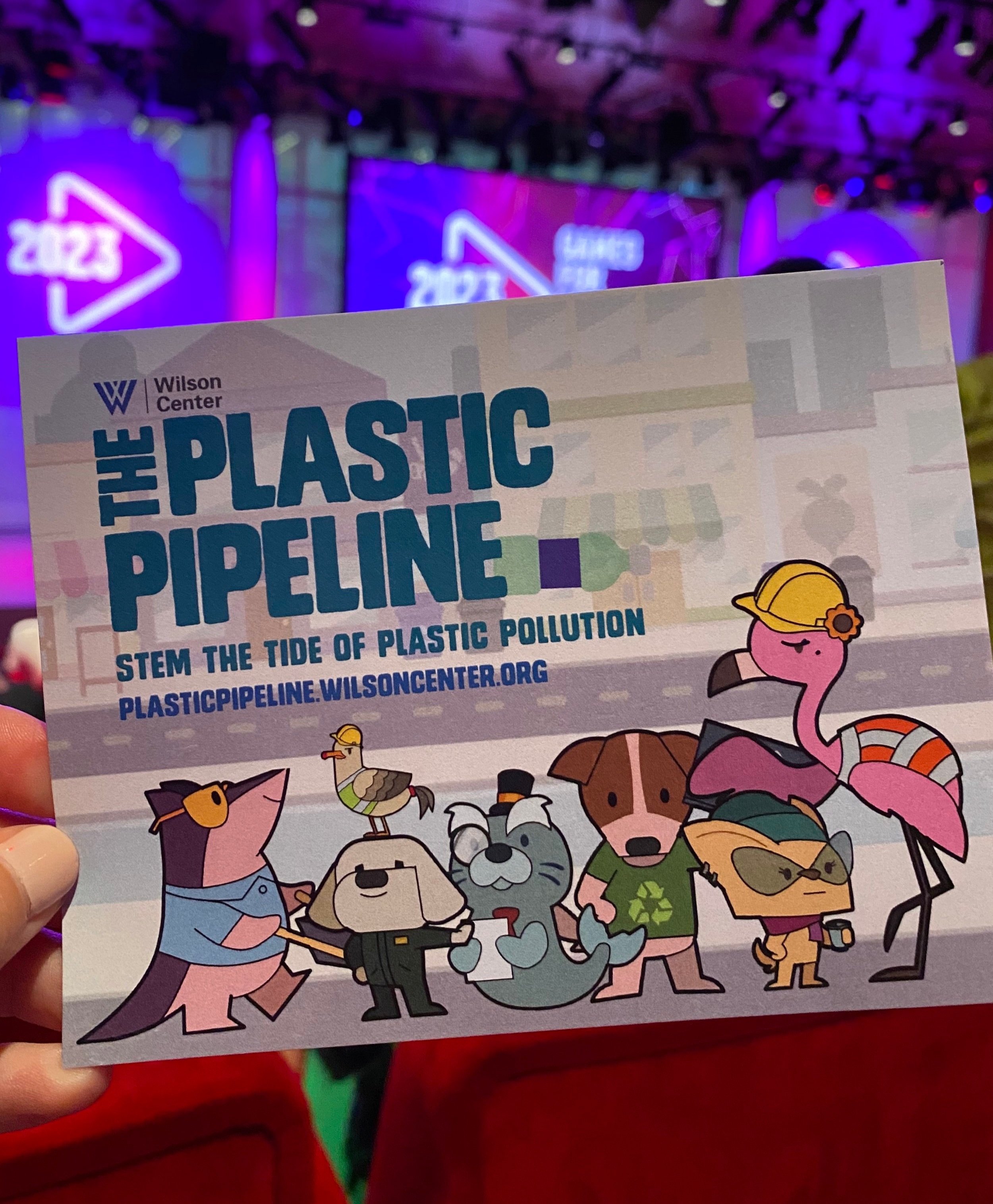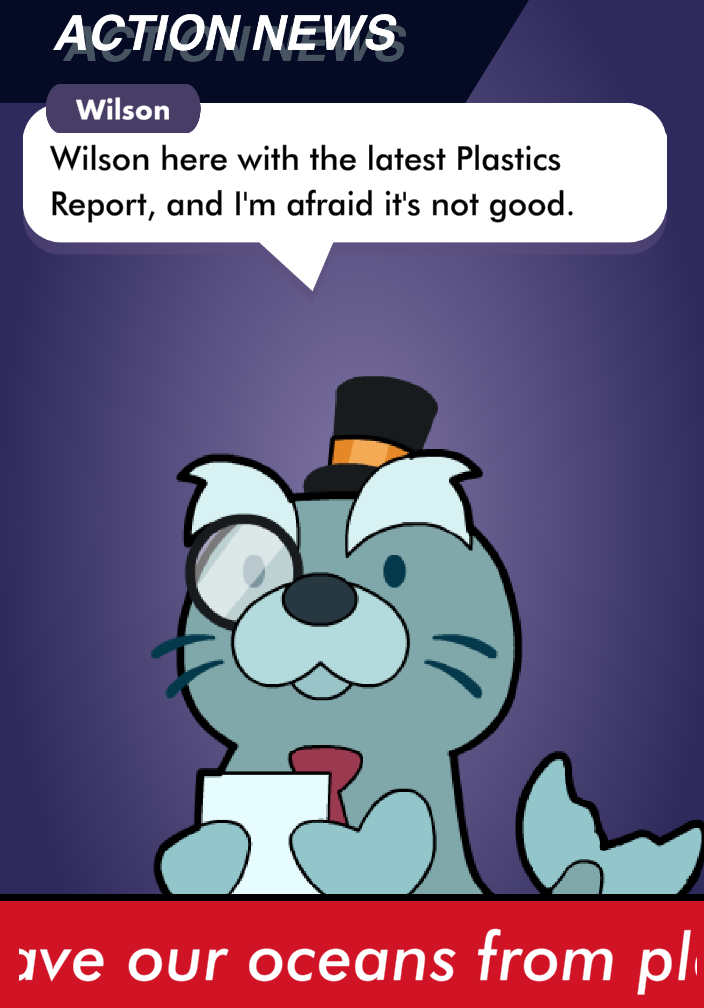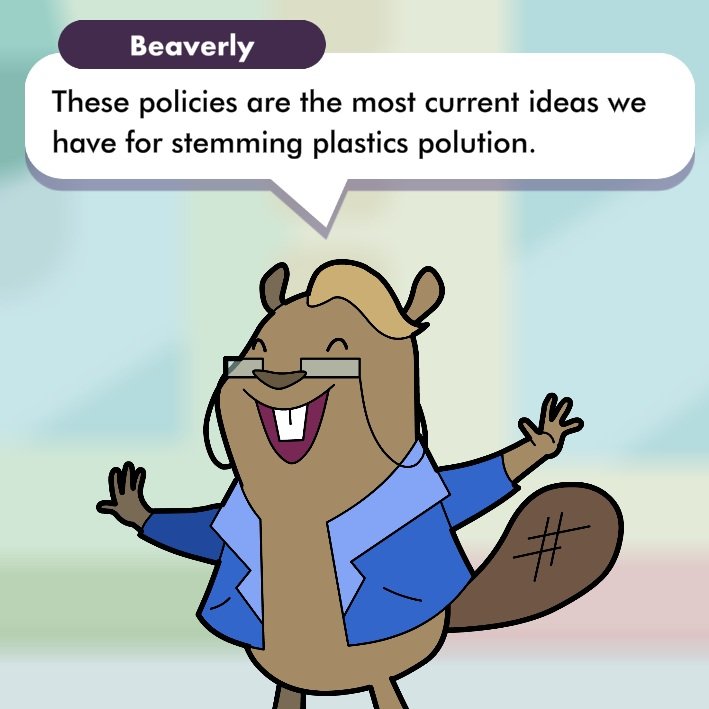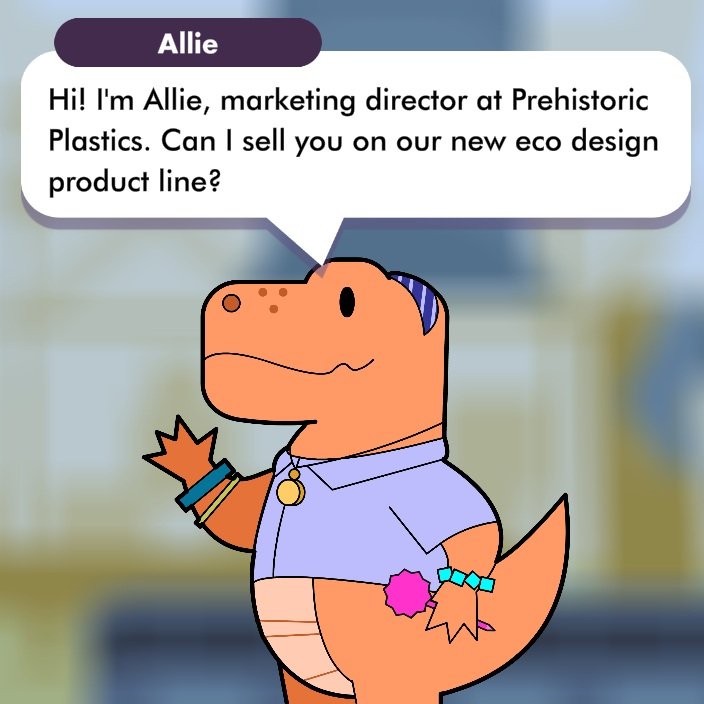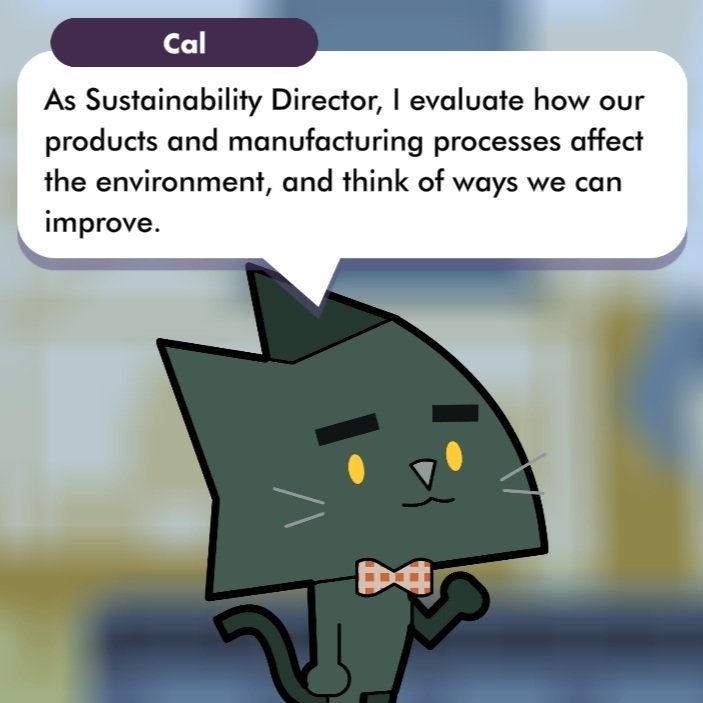Celebrating its 20th anniversary, the Games for Change (G4C) Festival in New York City brought together industry leaders, game developers, executives, and fans to share best practices from the best impact-making games and the creative minds behind them.
As frequent festival presenters, attendees, and award nominees and winners, FableVisionaries are no strangers to G4C. FableVision has attended and been involved with the festival from its early years, as it perfectly aligns with the studio’s mission to move the world to a better place through positive media. We’ve proudly collaborated with G4C in the past and have been honored to showcase our work in its arena. In previous years, FableVision’s Caduceus: Staff of the Alchemist, created with Children’s Hospital Trust, was nominated for the Direct Impact award, while Quandary, created with Learning Games Network, won the 2013 Game of the Year award.
FableVision shone at two studio project briefs, featuring our games Nunaka and The Plastic Pipeline. Read on for a recap. If you have questions about these projects, please reach out! We’re happy to chat.
Nunaka!: Games for Indigenous Cultural Heritage Preservation
FableVision Presenter: Anne Richards, Producer, Game Designer, Co-Creative
Created with Chugachmiut, a non-profit that serves Native tribes in the Chugach region of Alaska, Nunaka is an early childhood mobile game that excites 3-5-year-olds about the Alaska Native Sugpiaq culture, teaches the Sugt'stun language, and targets key school readiness goals. The game recently won the Formal Learning (Elementary) award at the James Paul GEE! Learning Game Awards.
Anne Richards, who produced the game, has deep expertise in developing children’s media for television, publishing, games, edtech, and more. Her experience and game design background contributed to creating a fun, engaging, and beautiful game. Anne’s presentation emphasized the importance of making communities like G4C more accessible to the Indigenous people who are inspiring conversations around representation in the edtech space – also how we can travel to meet knowledge holders where they are.
In the story-driven game, players take on the role of a Sugpiaq child living with their grandparents, Emaa and Apaa, in a fictionalized version of a community based on villages in the Chugach region. Players create an avatar and explore the village, completing activities and minigames, while collecting items and interacting with other residents, including human characters and animals from the region.
To make the game as culturally accurate as possible, FableVision co-designed and co-developed Nunaka with Chugachmiut and the Sugpiaq people during virtual Elder meetings. Studio members also visited Alaska multiple times for meetings to get feedback in person from the Sugpiaq Elders and village Head Start students.
Nunaka stands out from other cultural games by preserving an endangered language. “There were a lot of intricacies of working with Sugt’stun,” said Anne. “This language has been passed down via oral tradition rather than as a written language, and there is an extremely small number of master speakers remaining, many of whom have lost some of their knowledge of the language over time.”
To ensure that Nunaka captured Sugt’stun correctly, FableVision gathered groups of speakers to help each other with script translations and to collectively navigate dialectical differences, which could be significant even within a small geographic region. It was also important to investigate the cultural context behind translations to make sure details weren’t getting lost in the process. “One of our favorite examples: ‘Akutaq,’ which is translated as ‘Sugpiaq ice cream’ in English, is a dish of potatoes and seal oil. Very different from the ice cream we are used to,” said Anne.
Anne acknowledged the limitations of her ability to represent the Sugpiaq perspective on Nunaka’s creation process. “I’d like to challenge attendees and the larger G4C community to engage with ways in which these conversations can be more accessible to Indigenous people themselves,” she said. “It was not possible for our Alaska Native partners to travel a long distance for a brief conference presentation. I encourage the community to consider how to make our spaces more genuinely accessible to Indigenous and marginalized people.”
Play Nunaka today! The game can be downloaded on iOS and Google Play.
The Plastic Pipeline
FableVision Presenter: Jonah Gaynor, Producer
Considering that the world is producing double the amount of plastic waste as it did two years ago, the Wilson Center partnered with FableVision to create The Plastic Pipeline, an online game that educates and encourages policy change to combat leaks in the real-life “plastic pipeline.”
FableVision producer Jonah Gaynor utilized his game design background to design Nurdle Alert!, a minigame that teaches players about nurdles and their impact on the environment. “Nurdles are the ‘lego bricks of the plastic world,’ the smallest unit of melted down plastic,” he said. “Staying consistent to the art and style of the game, the minigame centers around capturing these nurdles with a net before they damage the environment and creatures.”
To engage young adults with the game, players act as influencers in Plasti City who have the power to create change by learning from characters in different locations who interact with the pipeline at every stage and represent different voices within the discussion of what to do about the plastics crisis. The game centers around policy decisions to show that the largest burden of responsibility for lessening plastic pollution falls on legislatures and policy makers, rather than individual consumer actions.
Director of Wilson Center’s Serious Games Initiative Dr. Elizabeth M. H. Newbury and Director of Wilson Center’s China Environment Forum Dr. Jennifer Turner presented with Jonah to explain the game development process – policy research, iteration and design, and testing, and the next steps, which would involve more testing and further building out of the game.
While Nurdle Alert! starts out fairly easy, the levels get exponentially challenging, mimicking the real difficulty of the clean-up process, and encouraging replayability. “The levels of the game demonstrate that the clean-up process doesn’t have a simple solution,” said Jonah. “While that is frustrating, players keep returning to the minigame hoping to improve their score. That also allows them to keep exploring the game, furthering its mission in educating players about the plastic pipeline.”
Check out the game and stay tuned for its further development.
In Summary – More Highlights & Takeaways
The G4C movement promotes using games for social change, and changemakers discussed how games can be more than great entertainment, but can also unite communities, improve players’ well-being, help players express themselves, foster creativity, provide education, and more. To spark change and make the most impact, speakers encouraged game developers to broaden the community by looking into emerging markets, making games available to a larger audience, and creating games with players’ interests in mind.
Among other topics, this year’s festival discussed how games can raise awareness about sustainability and social justice issues. Games like Endling: Extinction is Forever by Herobeat Studios (Game of the Year and Most Significant Impact) and Terra Nil by Free Lives (Most Impact) confronted environmental degradation and restoring nature.
Meanwhile, Go Nisha Go: My Life My Choice by Howard Delafield International, LLP (Best Learning Game) and (val)iant: or, val’s guide to having a broken vag by Cactus Studio (Best Student Game) focused on sexual and reproductive health, empowering women to make informed decisions about their bodies. The festival’s winners from this year represented eight countries – check out the full list of winners and nominees.
Grace Collins, a former FableVisionary and founder/CEO of Snowbright Studio, was recognized as the 2023 Vanguard recipient for their work in bringing the game industry to new places, such as the Smithsonian and U.S. Department of Education, as well as their advocacy for LGBTQ+ voices. We congratulate Grace on all of their amazing work!
Thank you G4C for a great festival. Until next time!


